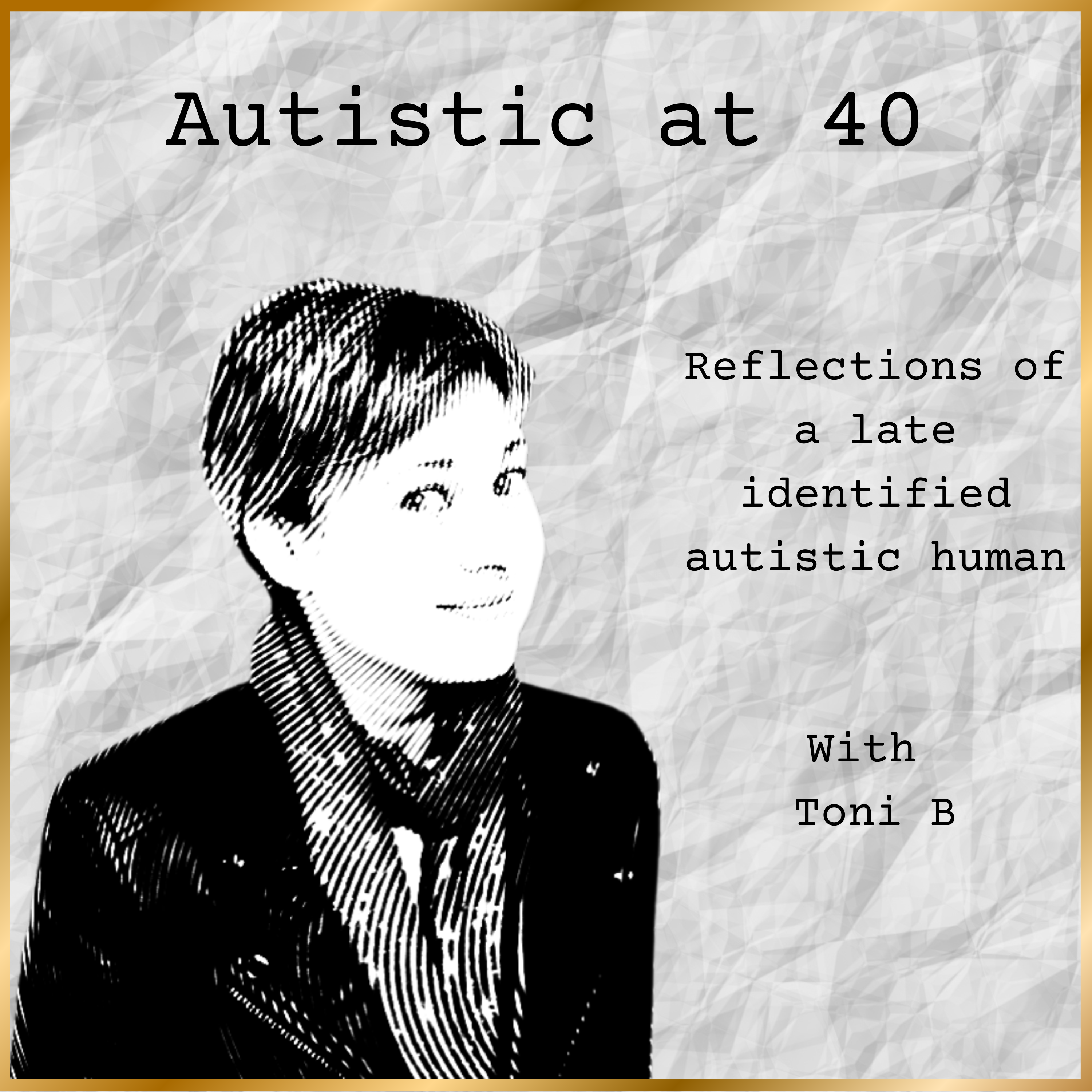

Blog
Welcome to the Recovery Code X Blog
We have created this blog to fill a need, provide a place for survivors and mental health professionals to share their experiences and research, analysis and recommendations, for addressing the long term consequences of complex relational trauma.
Submissions from staff, volunteers, supporters and guest writers.
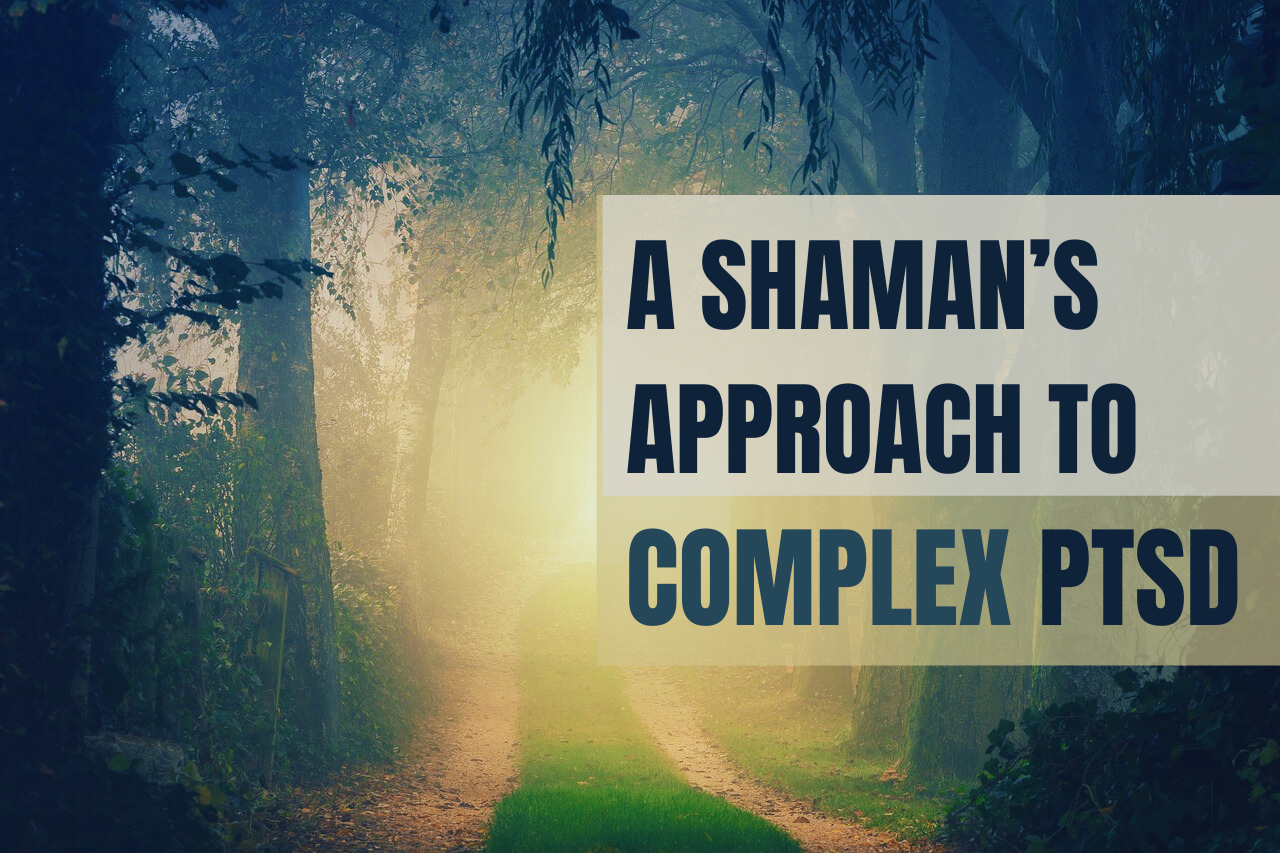
BRITISH BORN LEO RUTHERFORD first discovered the ancient wisdom of the Native American people back in the 1970's when he became a student at Antioch University.
He has devoted the last 35 years of his life as a shamanic practitioner and teacher.
In this article, he helps us understand how a contemporary shaman views Complex PTSD and some of the treatments that might be offered.
November 14th 2023
So just what is meant by those letters: Complex PTSD? The NHS website, says: 'The symptoms of Complex PTSD may include feelings of worthlessness, shame and guilt, problems controlling your emotions, finding it hard to feel connected with other people, relationship problems, like having trouble keeping friends and partners.'
As a therapist, these are all familiar problems that bring people into therapy, as they did to me nearly 50 years ago. They are typical cultural problems of living in this unbalanced, very separated and frequently lonely culture. So, how would a traditional shaman approach this?

Building a relationship of trust
Shamans tell stories and weave wise messages into the progress of the tale. For example, a shaman might take the sufferer for a walk in nature and point to the way the plants, insects and animals are inter-dependent and inter connected and how that is essential for their survival. And how all life is inter-dependent and each part is born for a reason, has a part to play.
The shaman would build a relationship of trust and encourage the sufferer to gradually open up to the shame and guilt that so often comes with abuse, the feelings of helplessness and worthlessness that abusive treatment fosters. The shaman helps the sufferer to see themselves as ever-changing, moving, growing beings and Planet Earth as a training ground for souls.
In my own practice, most often in a therapy room where nature walks are not possible, I would work with the person to guide them to express their true feelings, working in stages as they are able to let the feelings emerge. I would endeavour, as they gain some self-confidence, to lead them to express the anger and rage they feel against their oppressors.
 I would encourage them to speak to their abusers in the present tense as if they were present.
I would encourage them to speak to their abusers in the present tense as if they were present.

Finding a safe way to release suppressed feelings
In a safe way, with mattress and cushions, where they can release without hurting themselves, I would encourage them to speak to their abusers in the present tense as if they were present, and if appropriate, to say “I give you back....” I give you back the pain you caused me, the loss you caused me etc, in their own words. Emotional release leads to a sense of personal power, the right to express feelings, to speak truth. This reduces the power of the abuse to rule over their lives. For a deeply traumatised person, this can be a long but fruitful road.
When the sufferer has gained enough inner strength, I would then approach these more directly. Guilty for what? About what? For being less than perfect? Nothing is this realm is perfect. The Huichol Indians of Mexico craft wonderful 'paintings' with yarn stuck onto a board. In their tradition, they always make sure there is a mistake somewhere and if not they sew one in deliberately.
Nothing is this Universe is perfect and nothing is totally rotten. I remember as a kid searching for the perfect lupin flower. There never was one. When the lower part fully flowered the top was till budding and by the time the top was fully flowered, the bottom was beginning to rot.
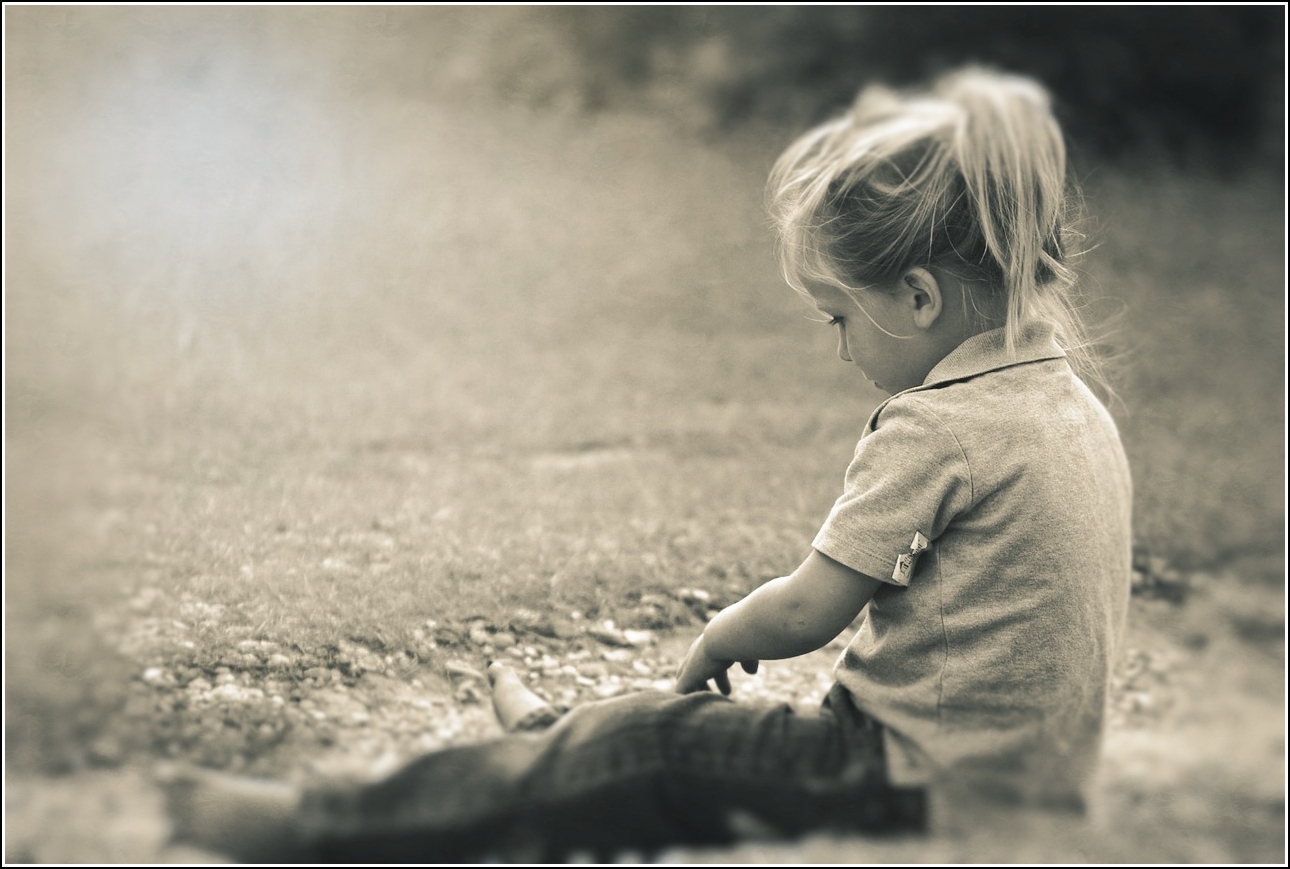
Soul Retrieval techniques can be used to restore lost child parts
Shamanic techniques work with Soul Retrieval. This is where the sufferer, if they are able, and the practitioner if not, travels into the 'Lower World' searching for the young version of the sufferer, at the time before, and then during, the abuse. When we suffer deep traumas, a part of us, of our energy, leaves. The purpose of the Soul Retrieval journey is to bring back parts that have left and re-incorporate them into the present energy matrix.
For example, a person trying their best at something is deeply insulted, belittled, ridiculed, their confidence shattered. A piece of their soul, their energy is crushed and it can result in them never fully putting themselves into that activity again. The resentment they feel against the abuser, they unconsciously take out on themselves. Soul Retrieval can bring back that lost energy and give the person a chance to re-integrate it with their current self.
However, the journey is only the beginning and the sufferer needs to actively embrace the recovered energy which may mean, for example, speaking out when they would previously have remained silent. This takes effort and daring and is a healthy exercise in standing your ground. By doing that repeatedly, by refusing to be shut up, reduced, trampled upon, they get back the lost soul part, the lost energy, and they grow in internal strength.
And that, after all, is the road home, the road to growing Our Self, and is a goal of life in this realm of opposites and challenges.
© Copyright Leo Rutherford. November 2023 All Rights Reserved.
If you wish to use or reproduce any part of this blog contact Leo directly by email: leorutherford@eagleswing.co.uk
| |
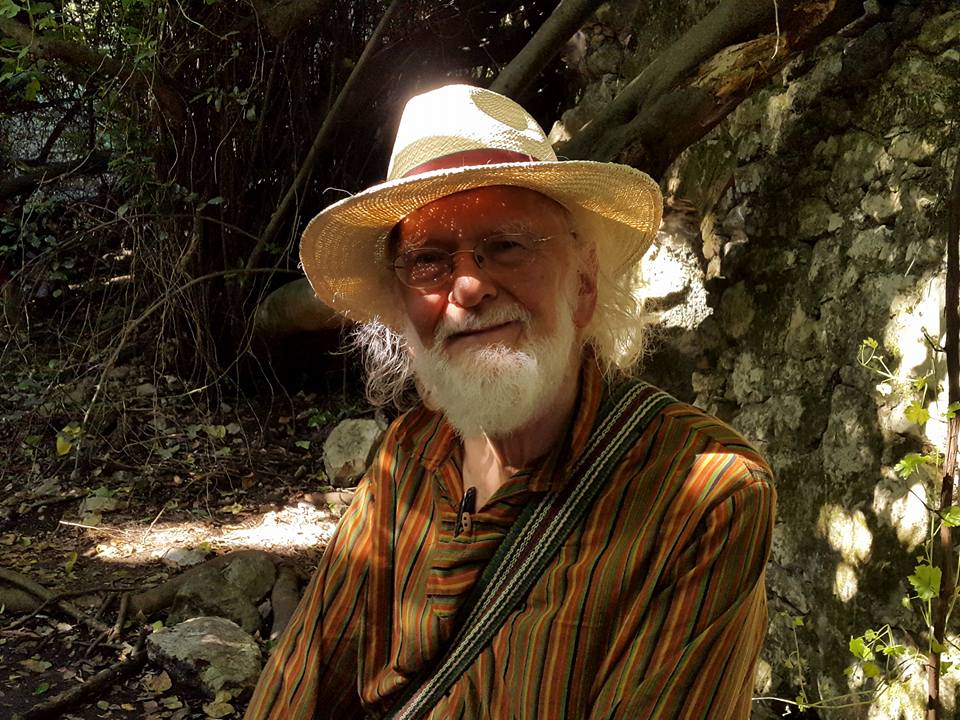
By Leo Rutherford, MA Holistic Psychology
Founder, Eagle's Wing Centre for Contemporary Shamanism (1987).
Shamanic Practitioner since 1987.
www.eagleswing.co.uk
Photo left: Leo Rutherford
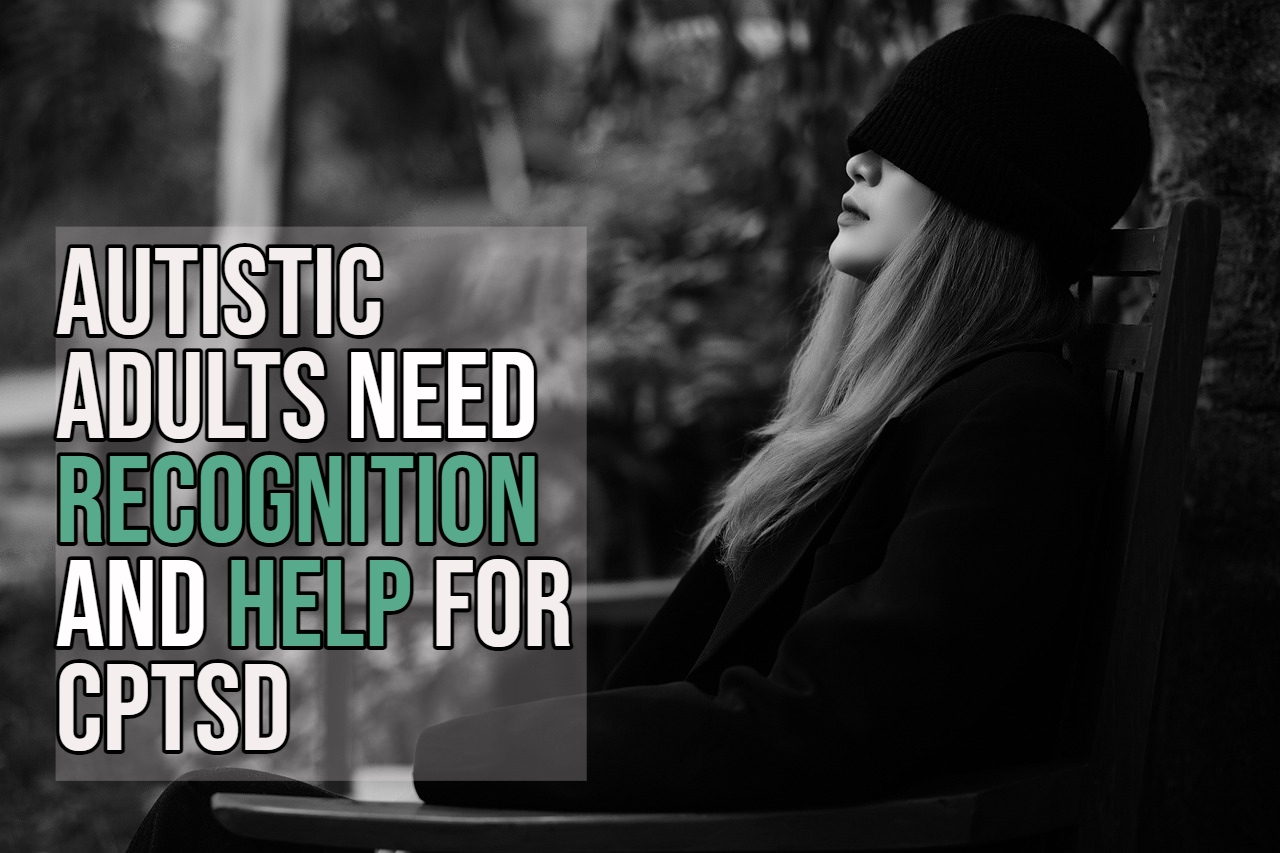
| |
Toni B never had a safe place – neither physically nor psychologically - as a child or young adult. Complex PTSD (also known as Complex trauma) literature didn’t resonate until she came across autism, and then it all began to fit together.
By Guest writer TONI B.
August 8th 2023
I remember learning about complex trauma. I have several friends who know the origins of their trauma; they understand how it has impacted their childhood development, impaired their sense of self and ability to form healthy relationships. They know trauma is held in their body, that their cortisol levels are abnormally high, their neurology and nervous systems rewired to an unhealthy baseline, and their immune systems are compromised, as a result. Their recovery journeys have not been easy and are not complete. But they have a language and framework with which to make sense of their struggles, to use as the basis for self-care and healing.
My friends are survivors of childhood abuse, and in some cases, quite significant trauma in adulthood, usually due to their vulnerability to predators.
I took in everything they told me about the knowledge they acquired from self-education, and sometimes therapy. I have worried about them all immensely - wished I could do something to take away their pain. And I have marvelled at their resilience in working through the last effects of their trauma.
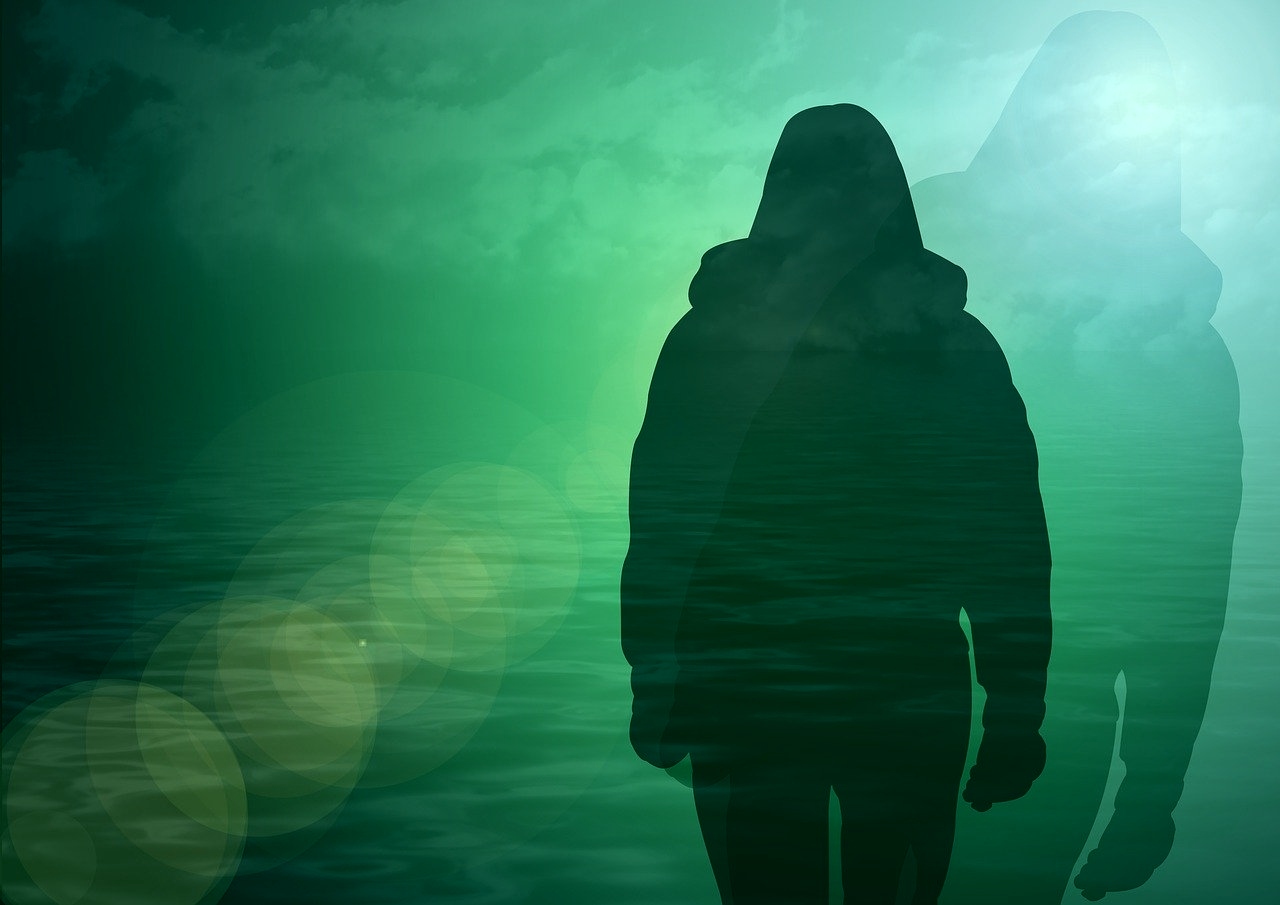
A shattered childhood with no obvious explanation
My own mental existence presented a wide range of challenges, and I was at a loss as to their nature and origin. I had nightmares several times a week from the age of five, when I started school. I often woke in the morning, sore all over my body from a night frozen in terror at the violence of the imagery of my dreams, vivid in colour, sound, and touch. I had friends but struggled with the dynamics.
From around age 10, I tended to get into very possessive one-on-one friendships with girls who seemed extremely concerned about their status, and who shared with me their schemes to convince much higher status girls to befriend them, and boys to date them. I watched them preen in the mirror before they went out on their quests, while they scolded me for looking ‘miserable’ but never took any interest in me or my life. I was baffled by my issues with rage and panic - crying often at the sheer overwhelm of any change in plans, or any activity not panning out exactly as I’d imagined.
 I turned my anger issues on myself.
I turned my anger issues on myself.
I found socialising in groups impossible to cope with - both the actual socialising a mystery to me, the noise of pubs unbearable, and the whole idea of it significantly less appealing than a night in on my own watching TV box sets. None of what I experienced seemed possible to articulate, and so I rarely tried to. I read books about spiritual growth and invested in therapy for anxiety. I was wild with fear, hopelessness, and exhaustion. I frequently had what I believed were panic attacks, although the symptoms were nothing like what I’d heard about them.
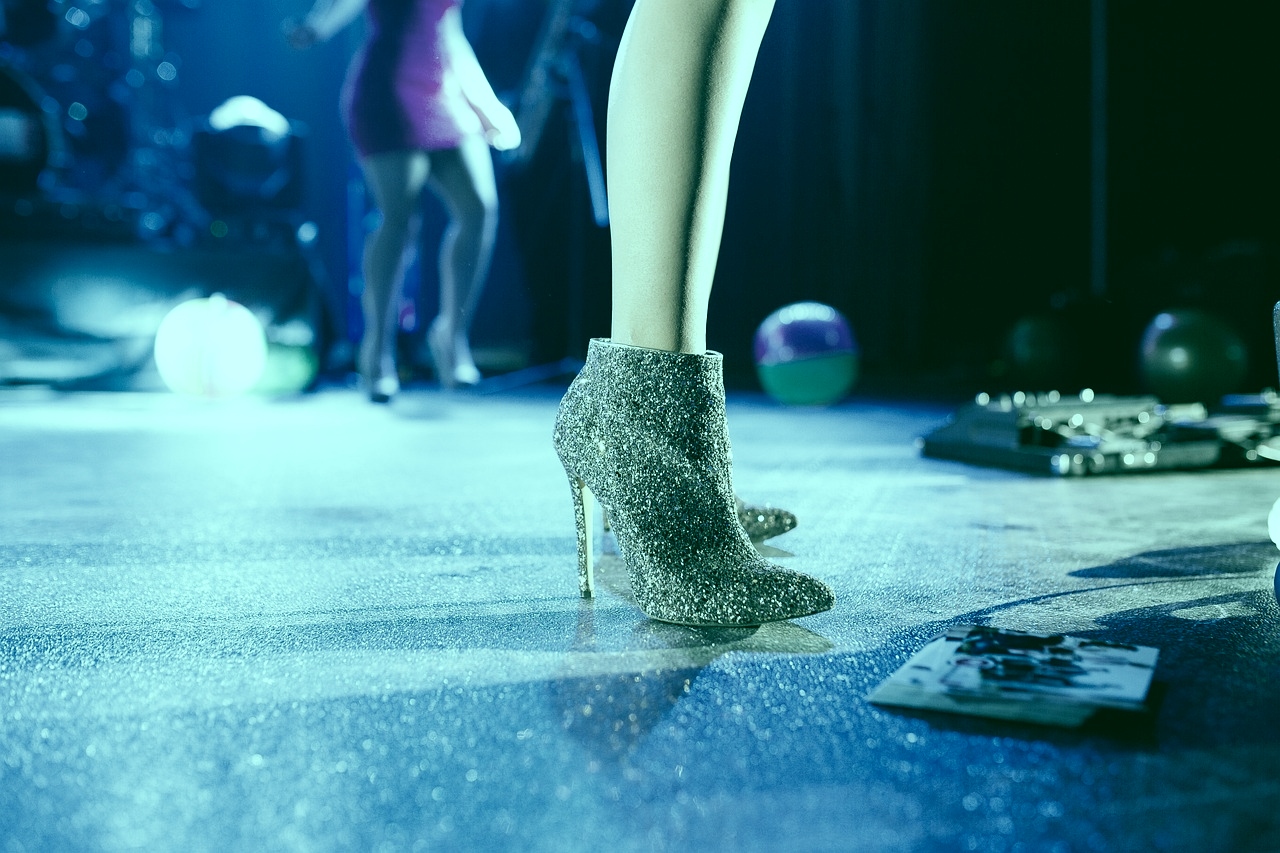
My anger had nowhere to go, since expressing it at the scale I felt it would be so unacceptable to friends and family. My solution was to turn it on myself through various forms of violence to my own body. I couldn’t sleep some nights, as I was obsessed with the possibility I might die suddenly in my sleep, or that I might be pregnant by immaculate conception.
 I frequently had what I believed were panic attacks, although the symptoms were nothing like what I’d heard about them.
I frequently had what I believed were panic attacks, although the symptoms were nothing like what I’d heard about them. 
No language for inner turmoil in a world blind to suffering
I stopped sleeping entirely in my twenties when I started working full time at an office in London. I became fixated on crimes I imagined would be committed against my partner and I, lying awake, listening for sounds of our home being broken into, ready to defend us. I also battled with a compulsion to pick at my skin and pull out strands of hair from my scalp, as well as eyebrows and eyelashes - a spiralling cycle of shame in which my self-consciousness about bald patches only made the compulsion worse. I fell asleep during any opportunity I had, often on the train to and from work, perpetually exhausted.
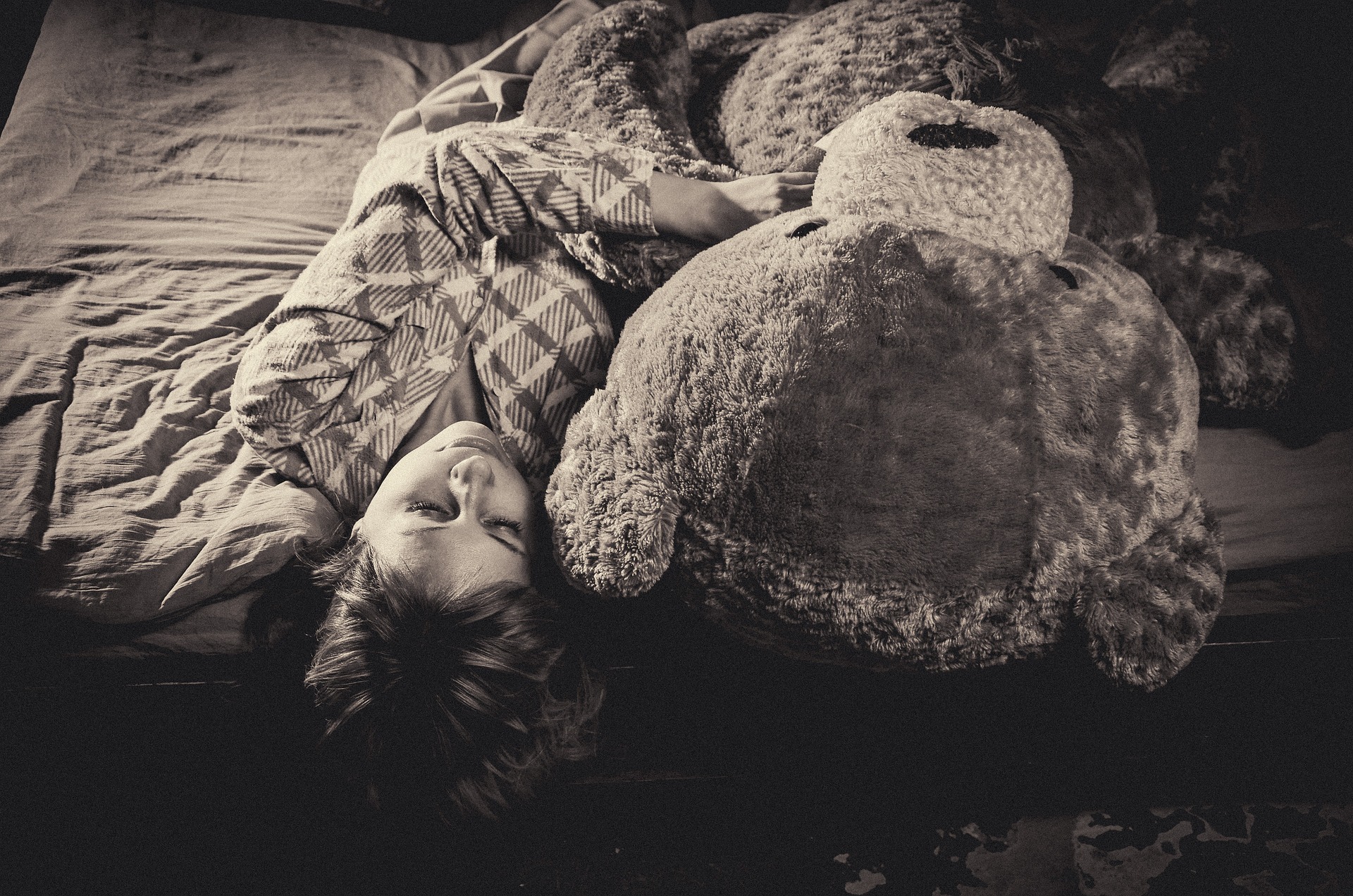
‘Abused’ didn’t apply to me
I searched through my memory for answers. I concluded that my challenges couldn’t be a result of trauma, as I hadn’t been abused, as my friends had been. Yes, I was scared of my father - who also had rage issues - when I was growing up. I felt sick with stress when he came home from work.
But presumably everyone knew how he intimidated me physically when I was left alone with him for our several-times-a-week music practice sessions. So that can’t have been abuse, could it? And, yes he controlled every aspect of my being, dictating how I spent all my time, what I wore, the length of my hair (even taking me to have my hair cropped short at 16, against my will), what activities I did, and how I behaved at all times, to ensure I fitted exactly the image of the ‘ideal daughter’ he’d had since before I was born, in his own words. He’d told me that none of this had ‘scarred me, had it’, and so I believed him.
Autism awareness was route to understanding Complex PTSD
Very recently, six months before my father died, I found out that I’m autistic, and that my father believed he was too. As I became more knowledgeable about what it meant to be an undiagnosed autistic human, the sparse knowledge I had about complex trauma very quickly became applicable to my life experiences. Being controlled and manipulated as a child, by a traumatised autistic father who had developed narcissistic coping mechanisms, I’d had no autonomy. I sought connection to others by fawning, and by being of service to them. Due to the fear of his unregulated autistic meltdowns, apparently triggered by my own needs and challenges, I’d also endured a level of violence that had put me in an intense state of trauma most of my waking hours.
Many of the ’social skills’ I’d mastered in my 30s, were actually ‘masking’, a form of dissociation from self.
I’ve had to navigate very real disability and delayed development as an undiagnosed autistic child and young adult with no self-knowledge or support. I’d been overwhelmed by the shame of being a defective human (as I’d believed I was) for so long, that when I also had abusive co-dependent relationships with friends, boyfriends, and bosses, in my teens and adulthood, I believed others when they told me I was incapable and lacked compassion for others (when I was in fact completely burned out).
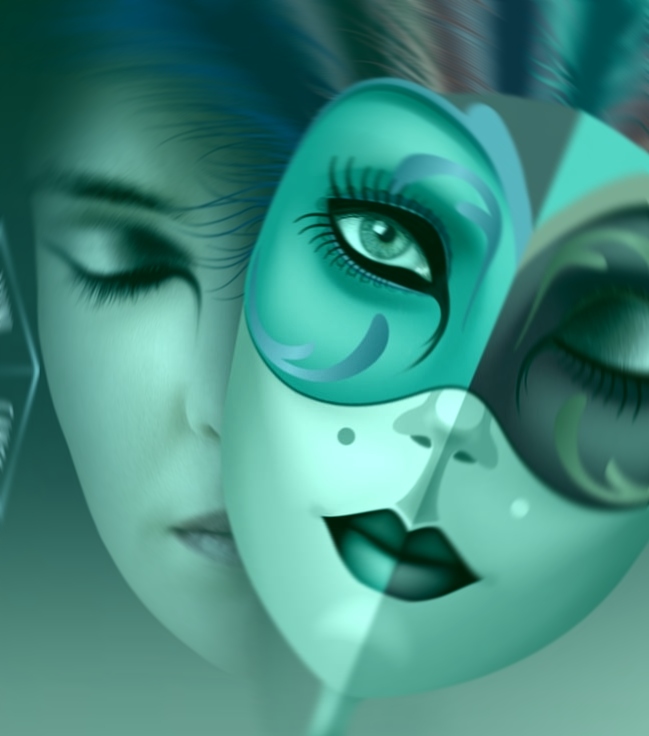
Social pressures create necessity for ‘masking’
I never had a safe place, or even felt psychologically safe, as a child or young adult - a concept I’d only recently encountered in a professional capacity. I realised that many of the ’social skills’ I’d mastered in my 30s, were actually ‘masking’, a form of dissociation from self, common in autistic adults who don’t know they’re autistic. Masking is, in effect, acting non-autistic by over-animating our faces and voices, acting safe even in sensory distress in unsafe environments, and pretending we understand what is going on around us when we’re actually in a state of hyper-arousal and unable to process.
 Many of the ’social skills’ I’d mastered in my 30s, were actually ‘masking’, a form of dissociation from self.
Many of the ’social skills’ I’d mastered in my 30s, were actually ‘masking’, a form of dissociation from self. 
Now I can see that, due to being autistic, major characteristics of which is taking things literally and struggling to process context, it had never occurred to me that any of what I had learned about complex trauma very clearly explained many of my ongoing issues. I had understood that it was common for people with complex trauma to have issues with relationships. But I wasn’t aware I had relationship issues - I thought everything was fine as long as I did whatever other people wanted me to. Not knowing that I was autistic, I didn’t realise I was taking things literally when I read about PTSD and complex trauma. I didn’t know that I was at risk of further trauma, every time I trusted someone I barely knew, ignored my own sensory and physical needs, and let my ‘mask’ slip around people expecting specific behaviours and communication from me.
Complex trauma – the norm for autistic adults
And suddenly I can see this exact same experience all around me. Since starting my podcast, and creating an online group for autistic adults, this unidentified complex trauma experience is absolutely the norm for autistic humans. Unless, by some miracle, their care-givers had the instincts, courage and resources to break the cycle of trauma, everything I experienced is pretty much inevitable.
Many autistic people who have had children themselves, are understanding the reality of their own trauma through the lens of now fighting to meet their child’s needs, and to keep them safe. The effort that this takes - in spite of, rather than enabled by education and health systems - is so immense, that it throws into stark comparison what was not done for us. Those of us (like me), who do not have the lens of parenthood, may never make this connection. Some children are even subjected to abusive, so-called behaviour therapies, in which they are actively trained how to mask by withholding food, drink and items needed for nervous system regulation - which has been directly linked to PTSD outcomes.

Traumatised autistic people need specialist help and public awareness to end discrimination
I can now see a clear and urgent need for information and resources specifically for autistic people, who have been traumatised by the type of everyday experiences that allistic people find straightforward, easy, and even enjoyable. We have lived in a state of burnout and hyper-arousal for most, or all our lives. We’ve been abused, excluded, and discriminated against simply for being ourselves - leading to self-abandonment and dissociation as the default state. Many of us don’t know what our basic needs are, let alone how to begin the trauma recovery journey. It’s time to stop the cycles of autistic complex trauma.
© Copyright Toni B. August 2023 All Rights Reserved.
If you wish to use or reproduce any part of this blog contact Tonia B directly by email: autisticat40@outlook.com
| |
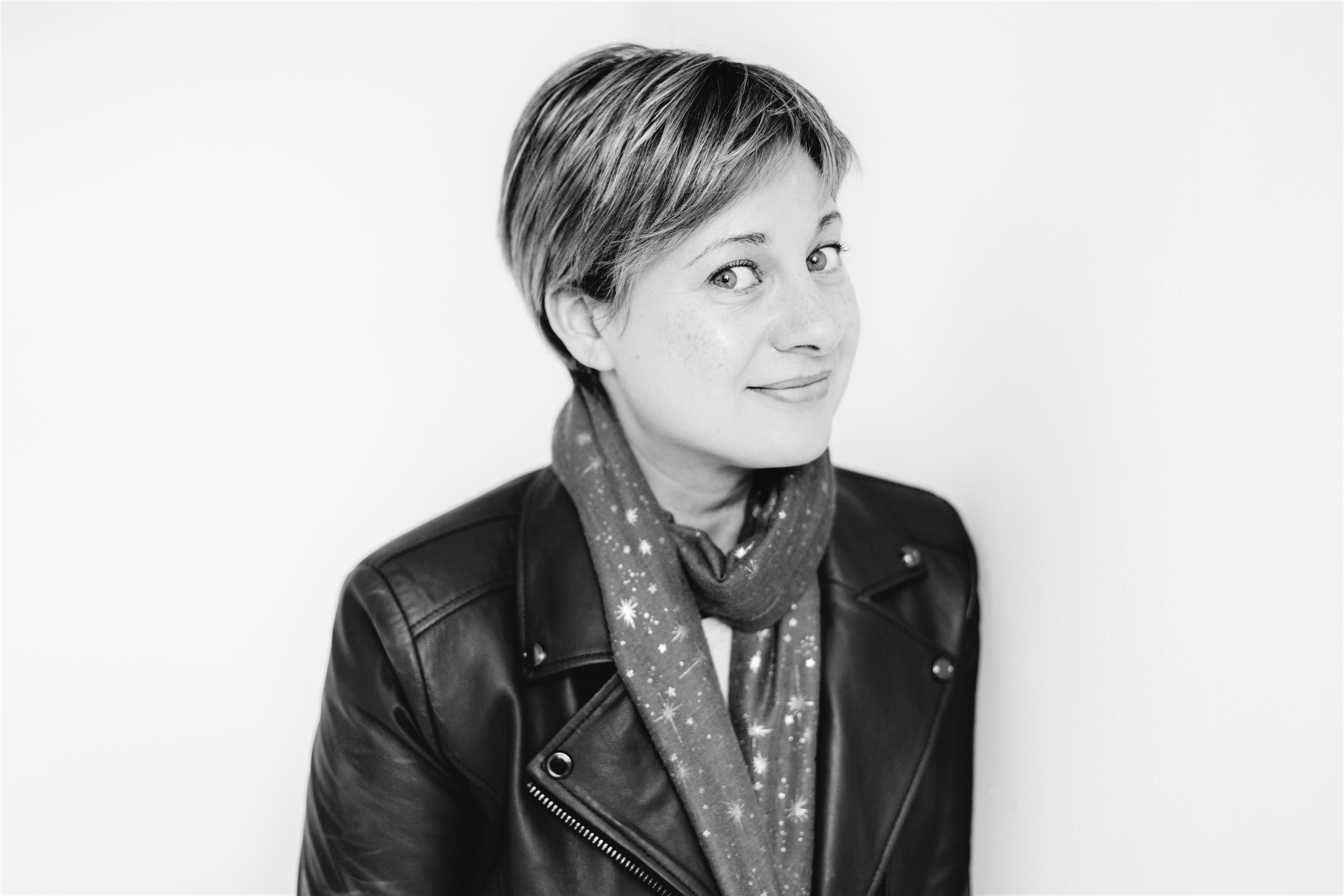
By Toni B.
Toni is one of the many adults who has discovered, quite a long way into living life, that they are autistic. Toni didn't know she was autistic because she had never seen or heard anything about autism that resonated with her. By the time of the discovery, she had almost given up on herself, on the future, due to an overwhelming sense of confusion and shame.
Now she's making sense of her life, through an autistic lens. She's figuring out how to remove the 'mask' worn by so many autistic people. Deep diving into the joys and challenges - and sharing everything she's figured out for herself so far on her podcast,  Autistic at 40 and through her
Autistic at 40 and through her  Instagram reels. Toni is a health policy campaigner, currently working for a health trade union. She lives in Surrey with her very supportive husband, and their two cats.
Instagram reels. Toni is a health policy campaigner, currently working for a health trade union. She lives in Surrey with her very supportive husband, and their two cats.
| |
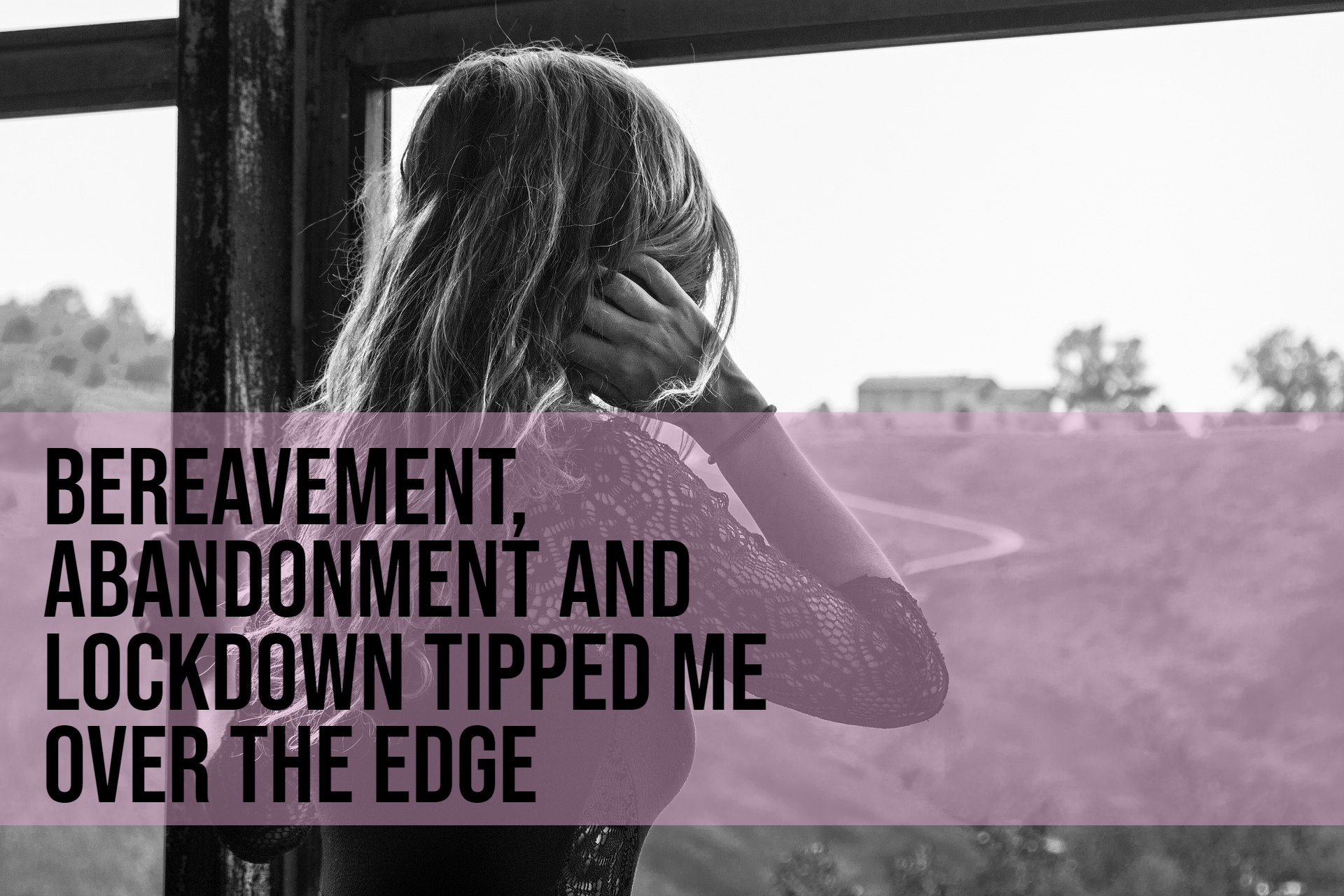
This is my story and how I found my way back, by CARRIE GLADWELL
April 20th 2023
My mental health has, at times, been somewhat of a challenge to me. But suffering a huge bereavement followed swiftly by abandonment of all family members, a toxic loveless relationship, and then isolation through lockdown, tipped me over the edge. I lost my family, my home, my job, my health and my sanity. I was alone.
I was fragmented, mentally. I’d lost parts of my soul. I was disconnected in every which way. Childhood traumas resurfaced with force. Traumas received as an adult and a very traumatic recent experience knocked me off my feet. They all came at once. I was suffering with Complex PTSD. And the fragile string that was barely holding me together started to fray more.
Gloomy GP options fuelled hopelessness
Countless trips to the GP resulted in recommendations of tablets and a place on the very long waiting list for speaking therapy. It was gloomy. The tablets they gave me made me feel worse, and doctors told me to hang in there for a month whilst I waited to get some improvement. I wouldn’t have made a month. Some days, just to take a breath felt like all I could manage.
I’m not saying the medication is a bad thing. It just didn’t work for me; I felt hopeless. My body kept telling me to slow down ahead of my breakdown. I passed out whilst I was driving my car one morning on my way to work. I still didn’t listen to myself. I kept going.
 I thought I was dying
I thought I was dying 
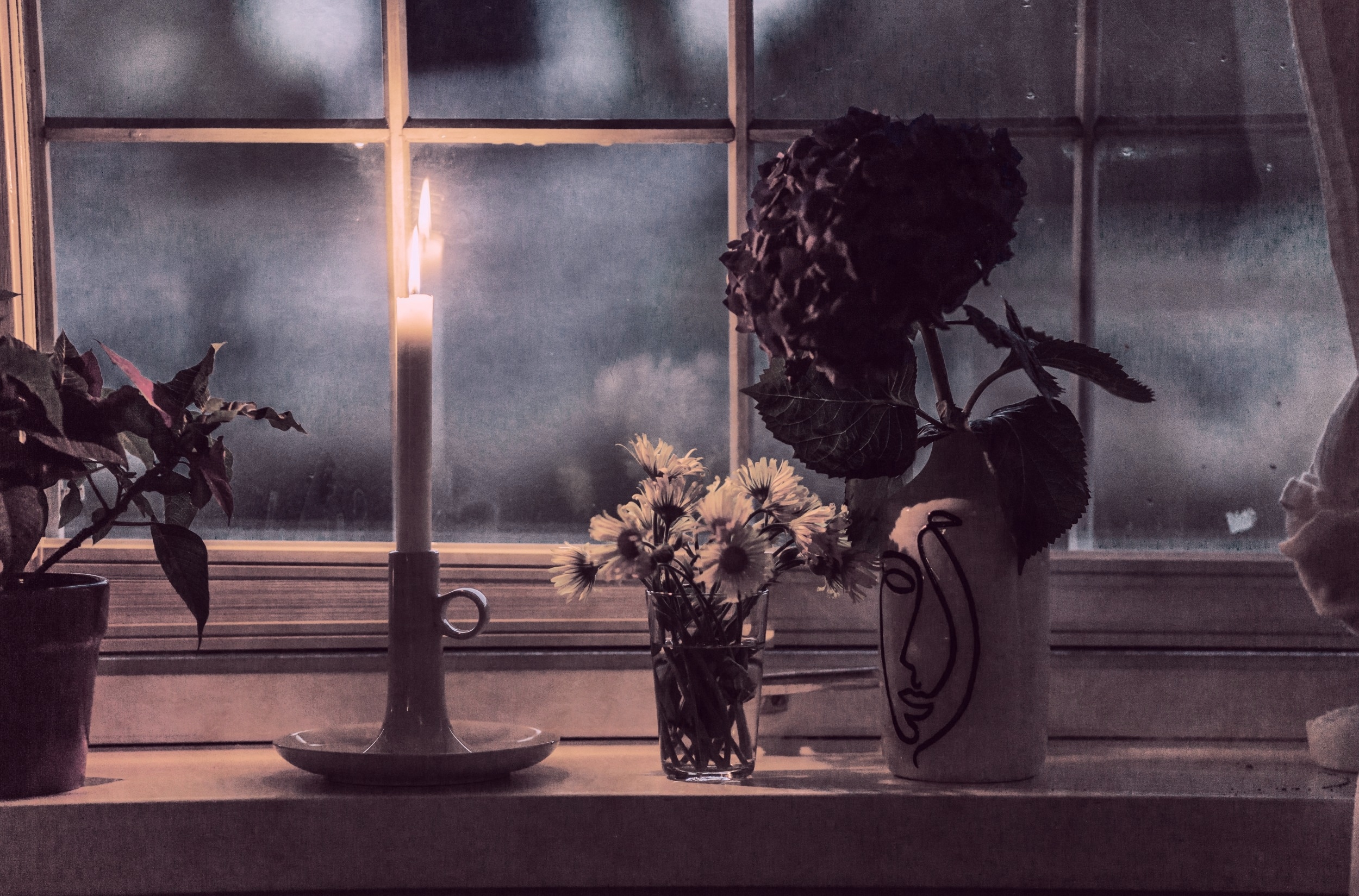
Eventually, my mind and body gave way, and I didn’t really leave my bedroom for 6 weeks. I felt ill. Worse than that; I thought I was dying. The fatigue. The despair. The hopelessness. I felt full of illness in my physical and mental self; the most vile feeling I have ever experienced.
Every day felt like it could be the last. My body and mind had given up. There seemed to be no way out of the despair. No one could help me.
Time went on. I started self-medicating. Anything I used to have love for had gone. Nothing filled my soul. I was still empty. I was searching for something that I couldn’t find.
Spiritual approach helped me recover
I’ve always been spiritual. My wider belief and the love for my son is the only thing that kept me alive through these times. In a last attempt to try and heal I started to reconnect myself. I was terrified. I wasn’t sure if I was strong enough to face the pain of all that was in my way but felt I had little choice.
I took very small steps.
I walked in nature. I found beauty in small things. The sound of the birdsong. The ever-changing nature around me. I moved with the seasons and took their teachings.
I turned to drumming and surrendered to all possibility of healing.
The rhythm of the drumming took me to a stillness I hadn’t been able to find before. It’s the first thing we hear. The mother’s heartbeat.
 Drumming held me in the safe place I had been looking for but not found.
Drumming held me in the safe place I had been looking for but not found.
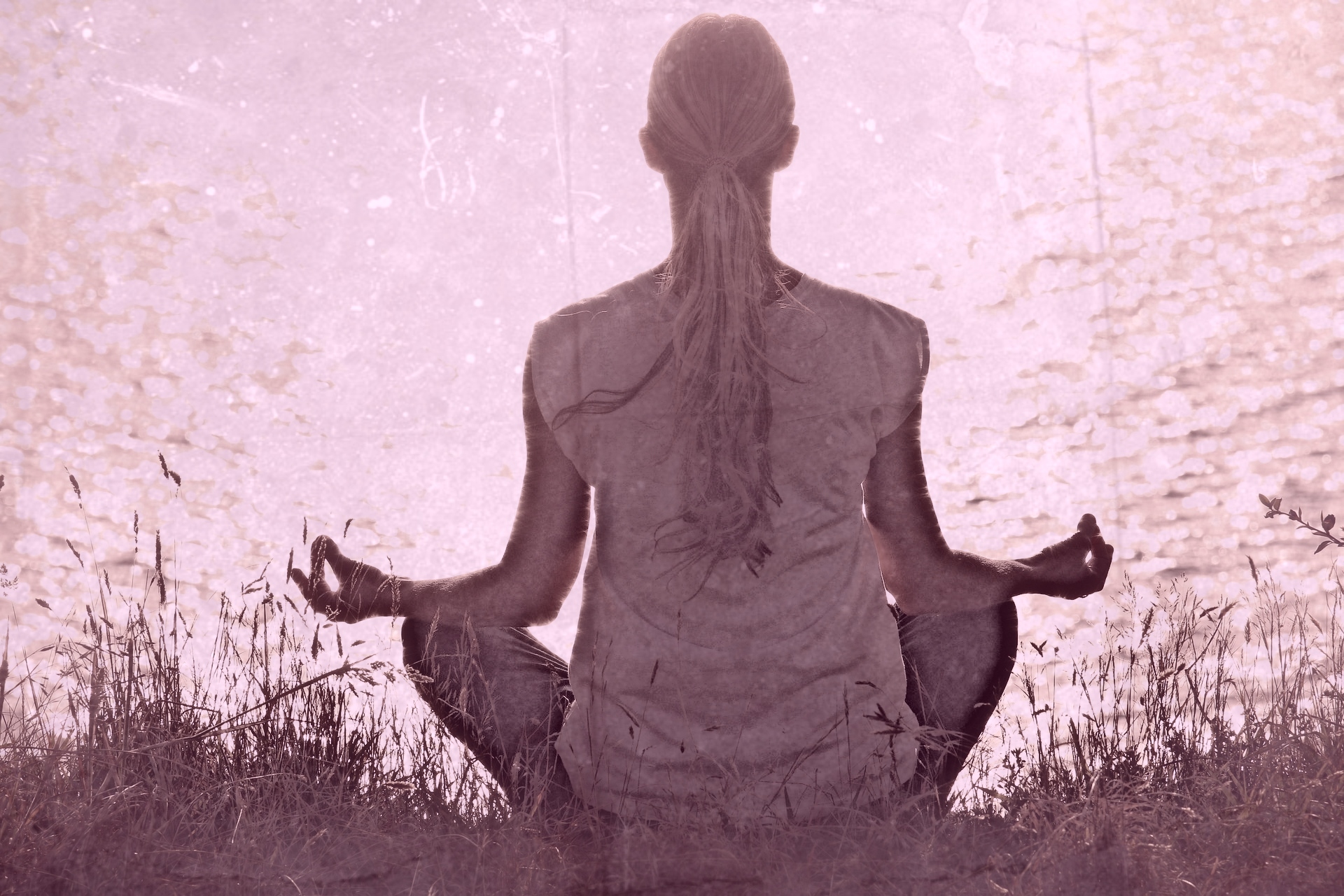
Going deeper into alternative therapies changed my life
I reached out to a therapist who was like minded. She walked beside me whilst I spoke into all the trauma I had held in my physical, mental, and spiritual self for so long. I had no idea I was carrying half of it. Every session was bringing me more and more healing. I won’t lie. It wasn’t easy. But I continued to surrender to the possibility of healing. I had nowhere else to go, so it felt like a good place to try and get to.
I continued with therapy. I went deeper into my healing with reiki, shamanic practice and speaking therapies. I listened to myself. And when the dark days landed, I kept faith that it would pass. I surrendered wholly to whatever it was that was needed to re connect. There was nothing else I could do. Eventually, the darker days became less frequent. The space I could hold for myself in joy grew.
We cannot heal whilst we are fragmented
We cannot heal whilst we are fragmented. Seeking the lost parts of our soul and being and bringing them back as one will allow us to reconnect and heal. This isn’t easy. But it is achievable. With the right support and guidance, it can be done.
Numbing our pain in whichever way we choose will never allow us to heal. The lost pieces must reconnect. One cannot heal whilst a piece is missing.
I found some of these pieces. I’m sure there are still some missing, but I’ll continue to seek these as I realise what could be missing and will keep going until I am whole again.
I am settled. I had lost everything.
But now I gain everything.

Training as a therapist gives my life new meaning
I am studying counselling and alternative therapies in the hope that I can help others that may find themselves in the same place that I was. I am learning about a new life. One that I will be happy and fulfilled in.
The work on self will never stop. But my toolbox for self-help and to help others is gaining.
If anyone is struggling, please know you can reach out to me. I will walk beside you. I share my story not for sympathy, but so that anyone else who may be silently struggling can take some hope.
I can’t explain enough how much I would not want anyone else to struggle alone.
There is hope.
The stigma that comes with mental health must end. It is nothing to be ashamed of. It is illness, and as with any other - let’s treat it with the same respect, care, love and attention that it deserves.
As someone so very loved by me once said: The only way out is in.
| |
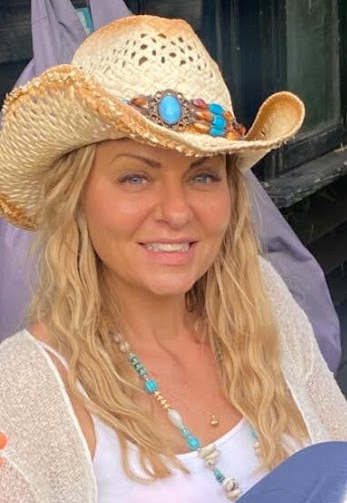
By Carrie Gladwell
© Copyright Carrie Gladwell April 2023 All Rights Reserved.
If you wish to use or reproduce any part of this blog contact Carrie directly via email: carriegladwell@icloud.com
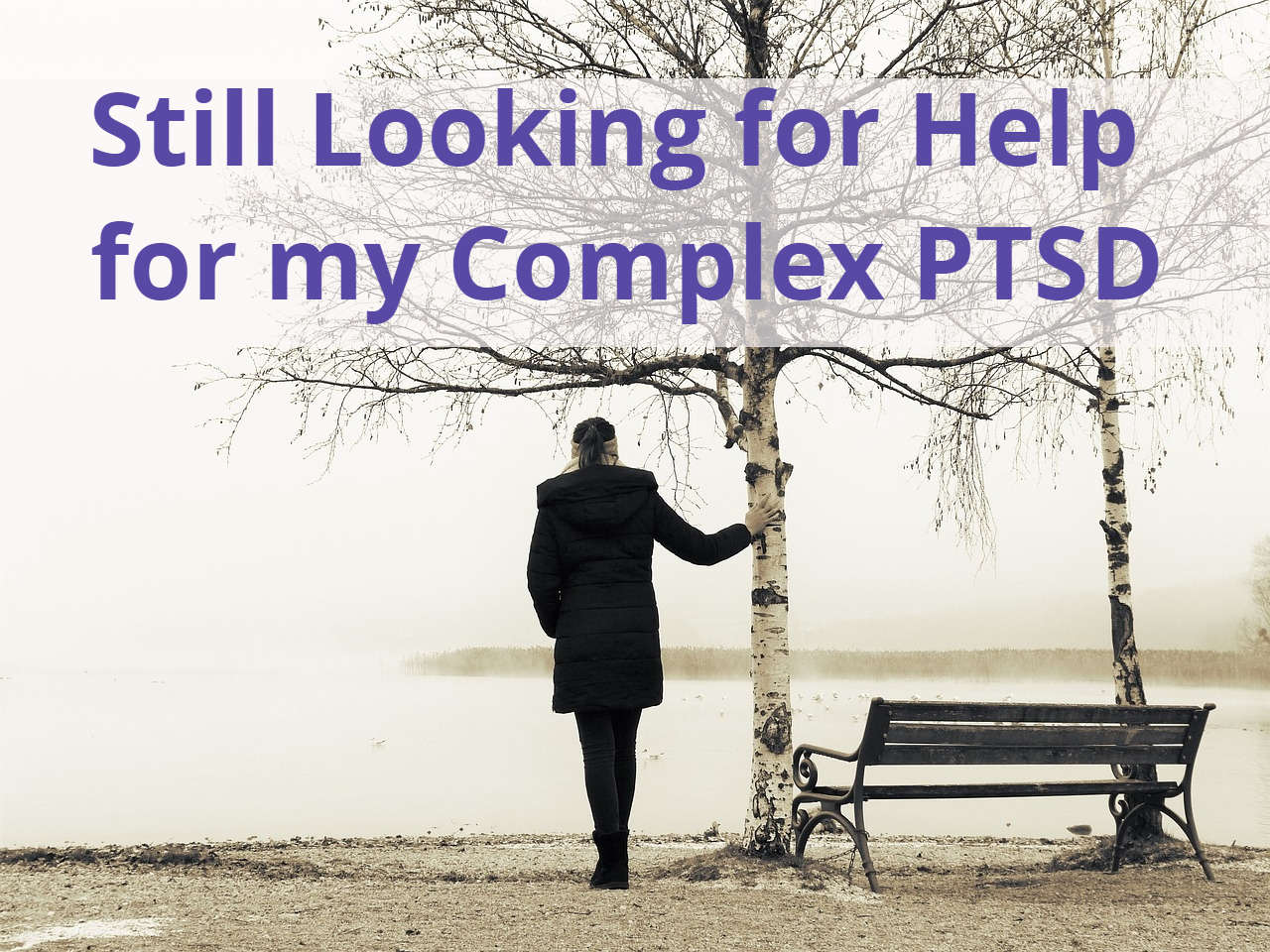
‘I was a puzzle to doctors and therapists, and even to myself’
By Guest Writer TANIA MAY
November 23rd 2022
Anxiety and depression have been the backdrop to my life since I was a young child. Although I have had periods where I’ve felt relaxed and at ease - and lots of moments where I was joyous, bubbly and confident - they have been short lived. I am easily blown off course by the ups and downs of life that others seem to navigate without becoming overwhelmed. When I eventually learned about Complex Post Traumatic Stress Disorder (CPTSD), just a few years ago, my struggles started to make sense.
Being coherent about my trauma didn't help me leave it all behind
I have been going backwards and forwards to the doctor since my early twenties. I have been on several types of antidepressants, and have had private counselling as well as rounds of Cognitive Behavioural Therapy (CBT) and Psychodynamic therapy on the NHS. Nothing ever helped me make lasting changes, however, and doctors and therapists would show signs of frustration at my failure to recover.
I had managed to get an education, a career; I was independent, I didn’t have financial worries or a young family to look after. I could coherently discuss the trauma and abuse I had suffered since I was a little child; all the terror, the neglect, and how it had hurt me. Why couldn’t I leave it all behind? Yet still I regularly turned up at the doctor’s office feeling desperate. During the worst moments, I would call in sick to work, hide away and numb myself, mainly by overeating or watching television, sometimes needing the television on all night to be able to sleep. I was a puzzle not only to the doctors, but to myself also.

Nobody told me that my nervous system was in meltdown
What nobody told me, throughout the years of seeking help, was that my nervous system was in meltdown, and that asking me to rationally consider my thoughts and beliefs about myself did extremely little to help me. Eventually, when, through my own research, I came across CPTSD, I learned I was being ruled by behaviours I was completely unaware were causing me great harm. They were behaviours that had kept me safe when I was young and living with a narcissistic father who terrorised our family relentlessly. I had developed hypervigilance, which meant I subconsciously scanned every moment of my life for danger. I was on high alert, subconsciously expecting the next slap from my father or to be abandoned by my mentally ill mother.
My depression, in fact, became more intense once I left home. I had so much hope I was leaving all the trauma behind me, but I had no awareness that my nervous system remained on high alert and I still saw danger everywhere. While studying, at work or with friends and family, I interpreted so much that is the normal rough and tumble of life as overwhelming or a threat to my survival. The smallest slight, or feedback that was even faintly negative would derail me. It was, and still is, an exhausting way to live. It causes me to suffer from poor concentration; I can’t relax and I feel anxious all the time. I had always been this way, so I didn’t recognise it wasn’t normal, and sadly no doctor or therapist ever really understood that my childhood trauma was still controlling many aspects of my life. It has had a detrimental impact on my career, friendships and relationships.
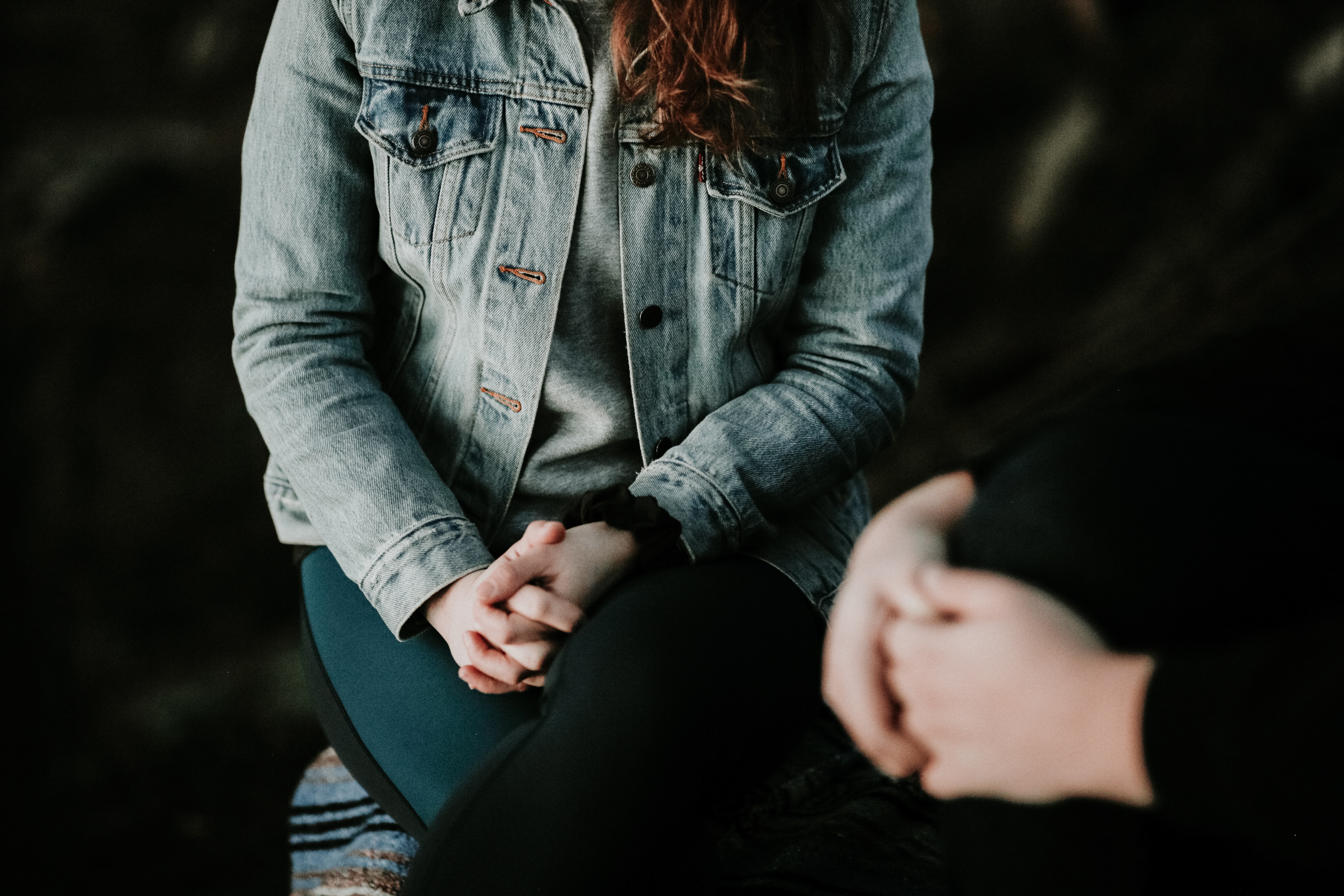
I realised that my behaviour was normal for a traumatised human being
As I’ve learned more about CPTSD, I realised my behaviour was normal for a traumatised human being. There wasn’t actually anything wrong with me, as I had sometimes been made to feel in therapy or by colleagues, friends and family. I had developed habits to protect myself from being hurt both physically and emotionally in my childhood, but they didn’t work too well in regular, normal settings like the workplace or with friends. I was essentially trying to feel safe and I was trying to control my environment to create the security that I craved. I learned I did this in many different ways.
The 4 F's trauma responses dominated my life
I was adept at fawning over people to make them like me. I was great at giving compliments and being a supportive friend, I could empathise deeply with people and I used these qualities to feel like I had people on my side. I made friends very easily this way, but I would lose them just as quickly once I realised I wasn’t getting the same back. But in other circumstances, I would freeze. In certain social situations, or in groups of people at work, I felt so threatened and overwhelmed that I couldn’t say a word. I also freeze if I feel I have been slighted or attacked or ignored, even long silences can make me feel anxious and hurt.
Often, I dealt with my anxiety or lack of control by giving up or ‘fleeing’. I regularly withdrew from occasions such as evening classes I’d just started or from a friendship because something didn’t feel safe. I still do it to this day. Sometimes I would behave in completely the opposite manner and rather than fleeing a situation, I would go on the offensive and I would fight my corner. In some instances, this has served me well, but on many occasions, I would have fared better if I’d been able to deal with the situation in a calmer manner, or simply by retreating to consider a different approach and come back to put my case another time. Ultimately, all these behaviours are me just trying to feel safe. Sadly, they often create more anxiety and shame, so it feels like a continuing cycle of emotional pain.
 I regularly withdrew from occasions such as evening classes I’d just started or from a friendship because something didn’t feel safe. I still do it to this day.
I regularly withdrew from occasions such as evening classes I’d just started or from a friendship because something didn’t feel safe. I still do it to this day. 
More needs to be done to help people desperately in need
Some people’s responses may not include all of these Fawn, Freeze, Fight or Flight patterns, and some people, like me, are a mix of all four. Understanding how I respond to every day interactions and situations, helps me to feel more control over my life, so that I am not simply in survival mode seeking safety, and I can live a fuller and more rewarding life. This is just a glimpse into what CPTSD encompasses, there’s so much to learn about how trauma impacts an individual and it affects everyone differently. I’m grateful that people are beginning to understand it more and that places like RecoveryCodeX are now offering the help people desperately need.
By Tania May
© 2022 Tania May All Rights Reserved
| |
How cultural dynamics in honour-based families can create the conditions for Complex PTSD
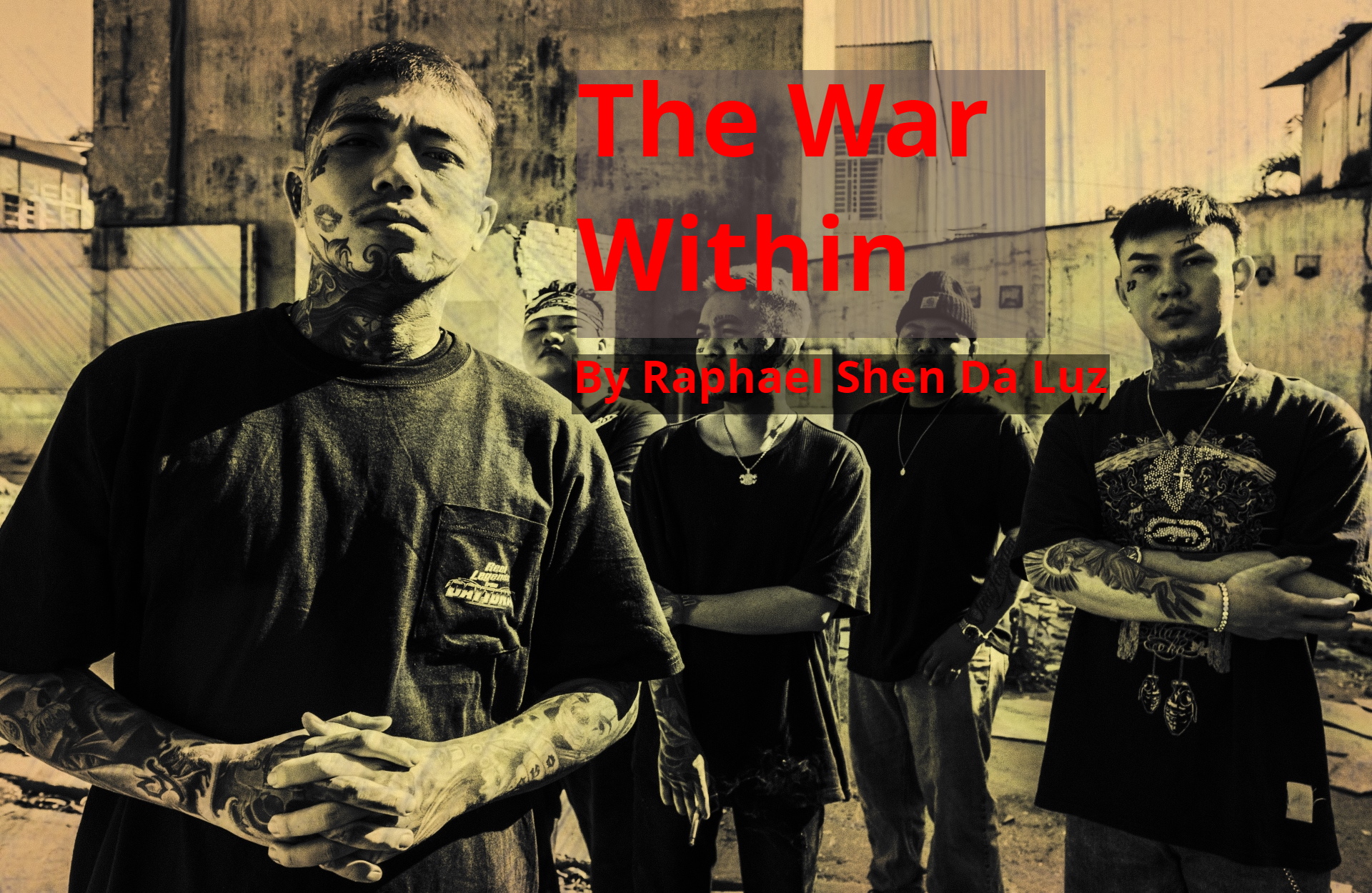
August 26th 2022
Growing up as a third-generation British Asian male in 80s Britain it was a struggle to assimilate between two worlds. The pressure to adapt to Western ideals while respecting unspoken family honour codes amid intense racist bullying at school felt like walking a tightrope.
Colourism was rife. Being a light skinned Asian male meant you were a traitor as you must be mixed race. I earned temporary respite by sticking up for some of my friends; but I was still called names like ‘%&$£! lover'.
To let teachers know about the bullying would have brought shame to my family and community, and given them a bad name, so I kept quiet. This is the true meaning of ‘honour’.
In many South Asian communities, issues such as ‘Besti’ (shame) and ‘Izzat’ (honour) take paramount importance, and there are certain acts that infringe on the cultural norms such as disobeying family and elders, sex before marriage, excessive drinking, drug taking, lack of adherence to cultural norms and appropriating what seem like Western ideals.
Keeping silent to stay strong
I assumed this was part of my heritage, to experience challenging circumstances. It must be normal.
I covered up unbearable feelings by eating, drinking and acting the jokey clown prince at home. I hated sport, shunning cricket and football, and had a terrible grasp of Punjabi, but was good at writing and lost myself in reading anything from Mum’s Mills and Boons to wrestling magazines.
I dare not speak my truth as money was tight and I feared what would happen to my mother and brother, often thrown across the wall like rag dolls by my father. Abuse came from all quarters: father, school, going to Bible studies – being the only brown face in the hall. I would smile in compliance, but inside I felt like an outsider. The children would chat amongst themselves about their holidays but I felt embarrassed, poor and dysfunctional.
The pressure to behave, keep the peace and uphold the family name, meant abuse and depression got driven underground. Mental health, police and social services seemed to turn a blind eye to domestic issues within the Black and Asian Minority Ethnic (BAME) communities. Police officers arriving at a domestic disturbance would ask basic questions then drive off leaving the victim and their families befuddled and stuck in cycles of abuse.
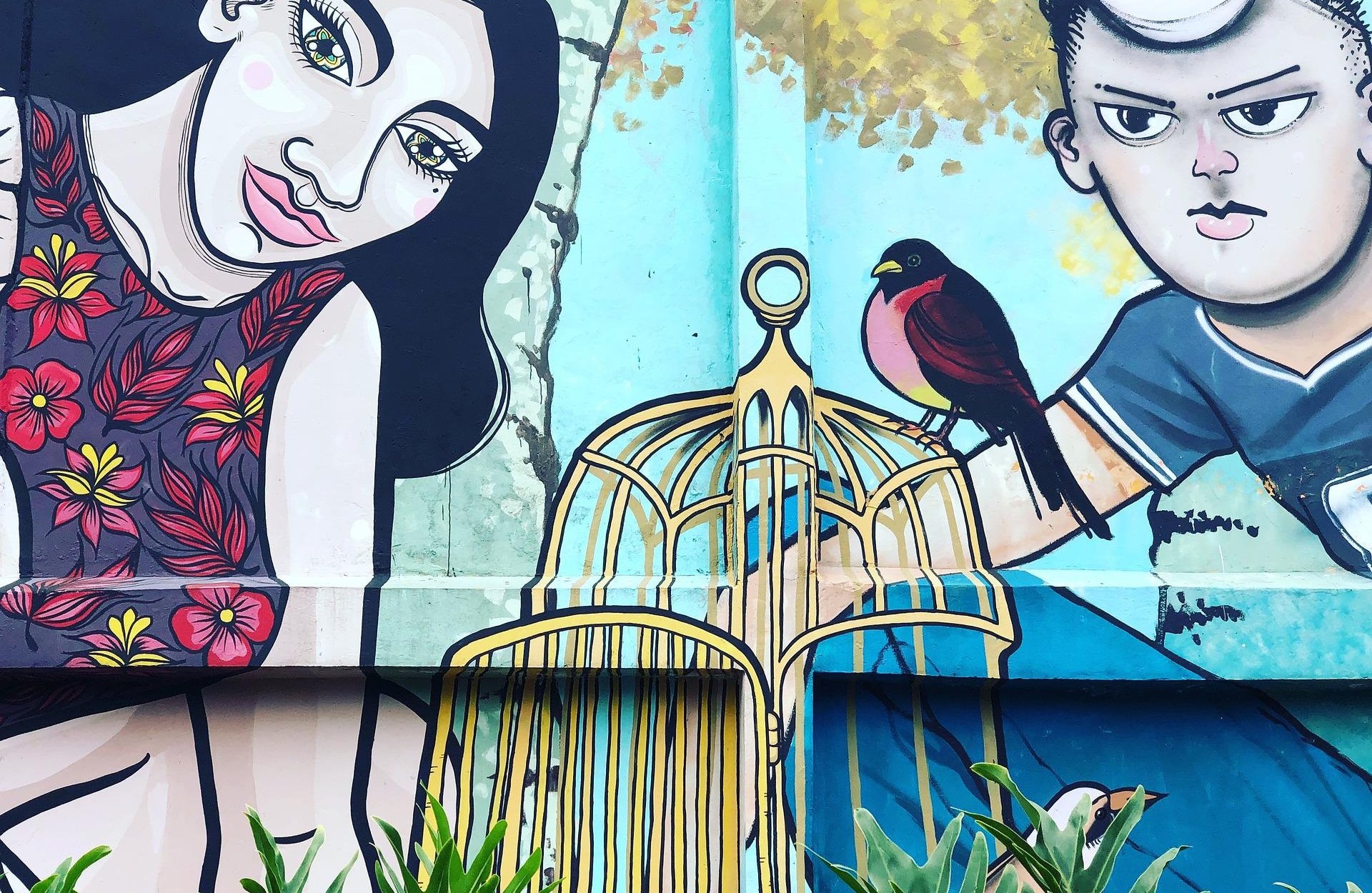
Self-harming and suicide attempts
Around five years-old I attempted suicide for the first time; filled the bath and attempted to drown myself under water. A knock at the door saved me and I was wrought with guilt about leaving my mum to fend for herself. This was when I started self–harming, making incisions in my arm or bruising myself intentionally. Back then it was too dangerous to confide in people; there were repercussions.
Things improved over the years, but being shy and quiet was my way of not coming across as a burden. I met many angels: people from different backgrounds, who felt like soul family. I built a tenacity, a thick skin, and a flagrant disregard for self-worth.
Finding my vocation generated self-worth and openness. Many people’s lives have followed a pre-ordained script of marriage within the confines of cultural norms. I count my blessings. I have lost many people to addiction, suicide, misguided notions of normality, extremism, and criminality.
Honour-based cultures can be a breeding ground for trauma, fomenting chaos. Trauma can be multi-layered and proliferates when abuse is perpetrated within your family or community – when the enemy comes from within.
Complex PTSD flourishes with self–policing to maintaining domestic harmony, particularly within older generations. We mustn’t forget our predecessors, the first wave Indian immigrants, and what they suffered prior to coming to England: the partition, social economic hardship mixed with a parochial attitude to status, feeling they didn’t belong, while clinging to the old caste system.
My maternal grandfather served in the British Commonwealth Army fighting many battles and was invited to Britain as a result. He developed Post-traumatic Stress Disorder (PTSD) as a result of the atrocities he had witnessed.
The political landscape and the rhetoric at the time was characterised by the now infamous Rivers of Blood speech in 1968 by former MP Enoch Powell. Complex PTSD still winds its way through honour-based societies today, a silent cancer, bloodied by the turmoil of inner conflict in a hostile Western society.
By Raphael Shen Da Luz
Writer, poet, mental health advocate, mentor and social care worker in the UK.
No one knew I was an abused child
Now I help others heal
By Raphael Shen Da Luz
Photo: Model, by Mikhail Nilov
May 25th 2022
It was an unspoken ugly truth. I was abused by an older male at a gathering, just five years old. I was stripped naked, sexually abused, and thrown into a room where other children laughed at me.
I fantasised about suicide years after. I was a chubby youngster who suffered poor body image for years. At home I was loud and overbearing, and at school withdrawn, too scared to talk as no one would believe me; dissociated from an early age.
No place to hide
I witnessed domestic violence. The 80’s where tough. Dad was a drunkard and would verbally abuse and hit us. My mum found refuge in the bible, but being from a South Asian background, I was teased and bullied at home and in the playground. My fair complexion did not afford me any privileges. Culturally, I felt an outcast due to what had happened. Dirty, immoral and confused; who could ever love me?I found comfort in eating and lost myself in comic books and the 80’s craze for WWF professional wrestling. My mum was a slag according to the twisted logic of my school peers. Until one day, they popped into my house, and saw we were a normal working class Punjabi household.
Helping others changed my life
Later on, I found refuge in toxic relationships and was drawn to be a healer. The spectre of abuse, cultural confusion and surviving domestic abuse has a taken its toll. I broke up with my university sweetheart (lovely woman) as I did not feel deserving of love. Self-deprecation and supporting my family lead to self-neglect.
The sad irony is that my Dad committed suicide 12 years ago, and I used that pain to forge a career in supporting those less fortunate. A tipping point in my life, it evoked a greater sense of purpose.
Trauma has no colour, but the dialogue needs to be had, particularly within an honour-based dynamic. My personal account is not shared for shock value but to enlighten. You can heal and grow. Life is not about attrition, but aspiration.
By Raphael Shen Da Luz
Writer, poet, mental health advocate, mentor and social care worker in the UK.
